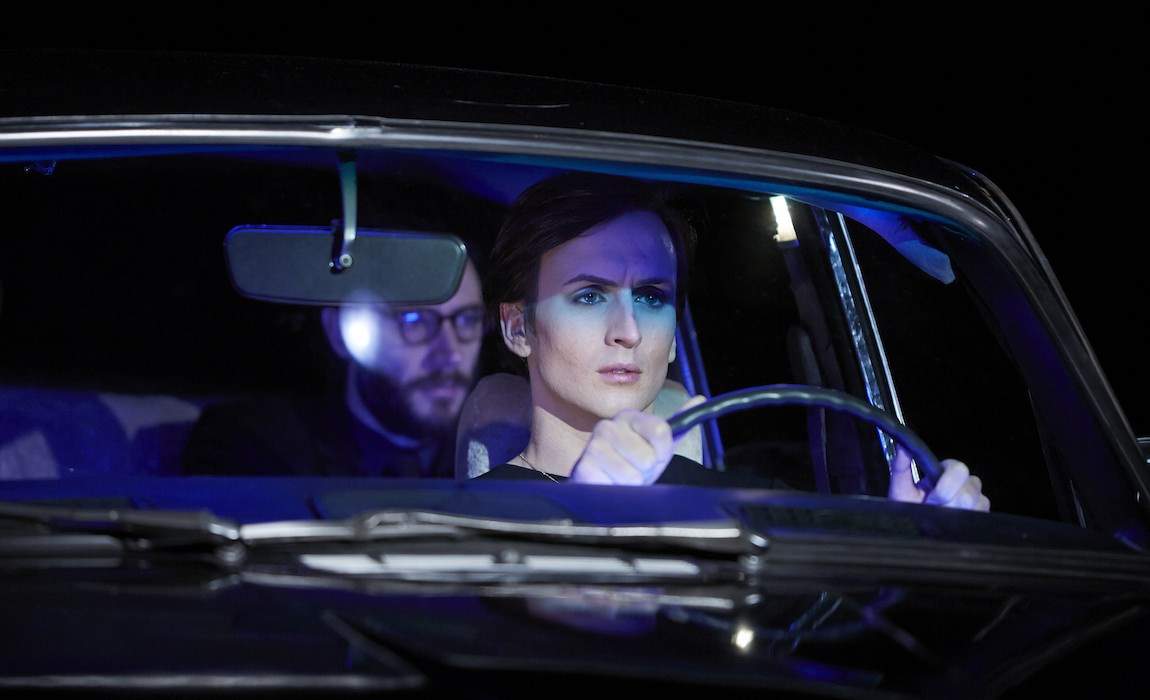Hedda Gabler – Belvoir
One of the theatre events of the year is a cool psychodrama with a leading lady who's a man.
Overview
After seeing last year's Little Mercy at the Sydney Theatre Company, I wrote of superlative drag performer and Sisters Grimm co-founder Ash Flanders, "Where other … performers are men in dresses, and instantly comical in the panto way men in dresses are, Flanders has to do comical things to earn laughter, because as a woman — a glamorous, statuesque woman — he's believable. There's a lot of subtleness in what he brings to a show you could otherwise readily call 'over-the-top'."
Since then, we've been waiting for the moment he would take the next step and play a woman in a naturalistic role. And what a woman he's landed. Enticed into the part by Green Room Award-winning director Adena Jacobs, Flanders is Hedda Gabler, one of the (let's face it, few) great female characters in 'the classics'.
A creation of Norwegian drawing-room dramatist Henrik Ibsen, Hedda is a mass of contradictions: bored and bursting with energy, vindictive and victim, capricious and calculating, desirable and defective, feminine and masculine. The daughter of an esteemed military general, she's admired for her beauty and status, but she bristles against the social expectations of her sex. She's repulsed by the thought of bearing children, obsessed with destroying the thick hair (yes, hair. Obsessed) and gentle nature of family friend Thea (Anna Houston), and hungry for a life that's bigger than the one she's got. In one of this production's great tableaux, she turns to playing a first-person shooter game when her new husband, schlub and middling academic Tesman (Tim Walter), starts talking about his feelings.
Hedda has not married for love. "I guess you could say I danced myself off the dancefloor. My time was up," she says matter-of-factly to Judge Brack (Marcus Graham), a sleazy and meddling acquaintance whom she sees as her equal. A spark of life appears in Hedda when she learns her former lover — precariously reformed alcoholic Eijlert Lovborg (Oscar Redding) — is in town. He's shopping around a manuscript so visionary it will make her husband's work look like it was glued together with Clag. Following the destructive path of this spark is what makes Hedda such a magnificent drama.
So what point, casting a man? Jacobs refrains from explaining her reasoning in her notes, but it seems part post-gender experiment, part answer to Flanders' unique qualities as a performer, and part foregrounding of the identity crisis within Hedda (easily the play's most interesting theme). It's not a gender swap, since the character is still female, but it's not quite gender-blind casting either. On stage as Hedda, Flanders is both man and woman at once, a dual figure constantly in tension and fascinating to watch hold. We're not able to forget that Hedda is a character wracked with inner conflict. It's the one element of the (possibly sociopathic) character everyone can relate to, but especially any woman who's ever felt less than 100 percent womanly — and probably even more so anyone who's genderqueer.
At the heart of it, Flanders is a very good Hedda. His characterisation is lean, mean and languorous, and his interactions a spectrum of disconnection. With her husband, aunt-in-law (Lynette Curran) and maid Berte (Branden Christine), Hedda is barely present. With Brack she's cool. But with Thea and Eijlert, she's briefly vitalised, briefly has something at stake. Boredom is the key mood, but it's not boring; each tete-a-tete sparkles in this adaptation, as in the original script. The cast is fantastic across the board.
This is a production that really looks the business. Refreshingly, it's not minimalist — there's a house! A car! A pool! They're all rendered in the scale, style and glow of LA, where this contemporised version is set. Reuniting with her Persona designer Dayna Morrissey, Jacobs has again gone for a set full of interesting spaces that frame the characters as playfully and meaningfully as a camera lens. In fact, the whole aesthetic here calls to mind one of the most stylistically influential films of the last few years, Drive. This Hedda too is dripping in synth, unease, bold hyperreality and neon-coloured violence. With Kelly Ryall's brashly discordant score, Danny Pettingill's expressive lighting and David Fleischer's deceptively simple wardrobe choices, it's hugely impressive. I would go to the theatre just to spend time in a design like this.
Hedda has had mainly negative reviews so far, so it looks like mine is the minority opinion here. For me, this was the Hedda I loved on the page (it's really not that radically changed) combined with what I love about Jacobs' growing oeuvre of cool, cerebral, cinematic psychodrama. My main gripe is that too much time was spent in the car, where the sound was pretty terrible. Otherwise, it was a riveting, intense world where one of history's great creations found a powerful new life.





